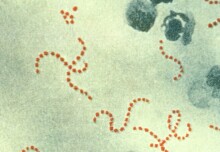

Leading particle physicist delivers 20th Schrodinger Lecture at Imperial<em> - News </em>
See also...
External sites:
More about the CMS experiment at CERN
(Imperial College is not responsible for the content of these external internet sites)
By Danielle Reeves
18 December 2007
Professor Tejinder Virdee, lead scientist on one of the biggest physics experiments in the world at CERN, began delivering the annual Schrodinger Lecture in Imperial's Centenary year by saying how the foundations of his field were laid 100 years ago, when Ernest Rutherford, the 'father' of nuclear physics, identified the constituent parts of the atom.
Speaking in the Great Hall on 21 November 2007, Professor Virdee outlined the background and history of particle physics, saying: "Particle accelerators allow us to revisit the higher energies of our ancestral universe and…allow us to observe particles and phenomena that are normally no longer visible."
Professor Virdee leads a 2,000 strong team of scientists from around the world on the Compact Muon Solenoid (CMS) particle detector experiment, one of the two general purpose experiments at CERN which are due to start collecting data when the Large Hadron Collider (LHC) particle accelerator is turned on next year.
During the course of his lecture, Professor Virdee described the aims of the LHC particle accelerator in general, and then outlined the detail of CMS experiment which he leads. "The LHC project is a voyage of discovery", he said, "creating high energy conditions that existed one thousandth of a nanosecond after the Big Bang."
The key aim of the LHC and its constituent experiments, including the CMS, is to discover if there is one unified theory that can be used to explain phenomena on both the small and the large scales. Currently there are two conflicting theories used by scientists: quantum theory which is used to explain the very small scale, including the behaviour of atoms, protons, neutrons and quarks, and Einstein's general theory of relativity, which is used to understand things on a very large scale, such as stars and galaxies.
Professor Virdee explained that although both theories have been proven to be correct, they cannot both be right at the same time, which has spurred scientists such as himself to search for a way of uniting these two theories.
Professor Virdee described the technical complexity of the enormous LHC, explaining how the 27km long circular particle detector underneath the Swiss-French countryside is being cooled to 1.9 Kelvin – colder than outer space – in preparation for it being switched on in 2008.
He also spoke in great detail about the CMS experiment, with which, he explained, his team especially hope to answer key questions about what gives particles mass. They hope to find evidence of a particle called the Higgs-Boson, which has been theorised but never recorded, and which is said to provide the answer to how particles acquire mass.
The CMS will do this by analysing the outcome of extremely high energy particle collisions that will happen inside the CMS detector. Professor Virdee added, however, that despite collisions occurring every 25 nanoseconds once the accelerator is up and running, they predict that only one in every ten thousand billion collisions could produce the Higgs-Boson.
Imperial's significant role in the CMS experiment was also highlighted, with Professor Virdee emphasising how the College's scientists have had a major input from the conception stage, through designing, building and managing the project.
Concluding his talk, Professor Virdee looked forward to an exciting year taking the first CMS data, saying: "Finding the Higgs-Boson could have a big impact on other fields…The experiments will speak, only they will reveal nature's secrets."
Watch the lecture in full(RealPlayer).
-Ends-
Article text (excluding photos or graphics) available under an Attribution-NonCommercial-ShareAlike Creative Commons license.
Photos and graphics subject to third party copyright used with permission or © Imperial College London.





